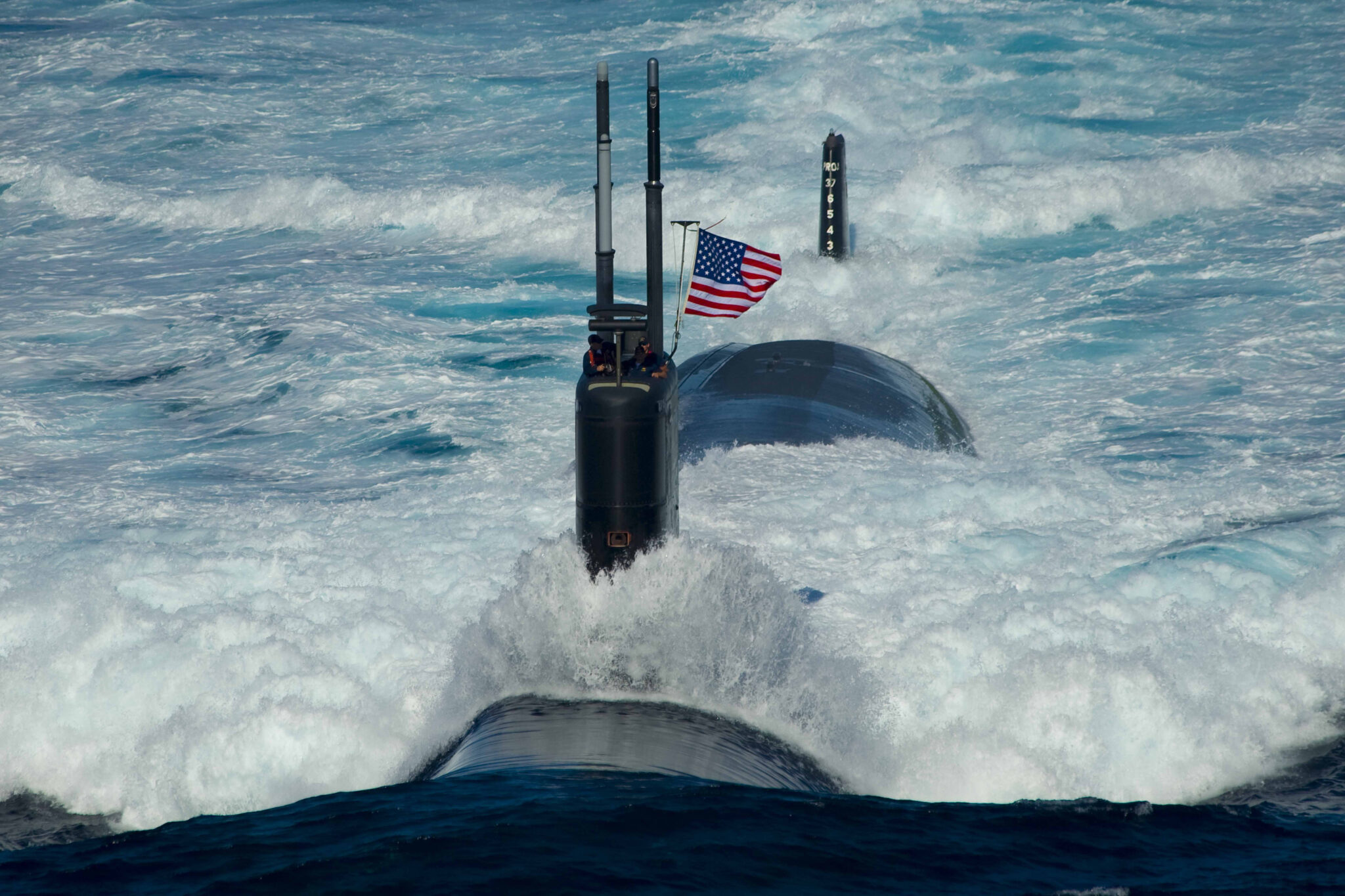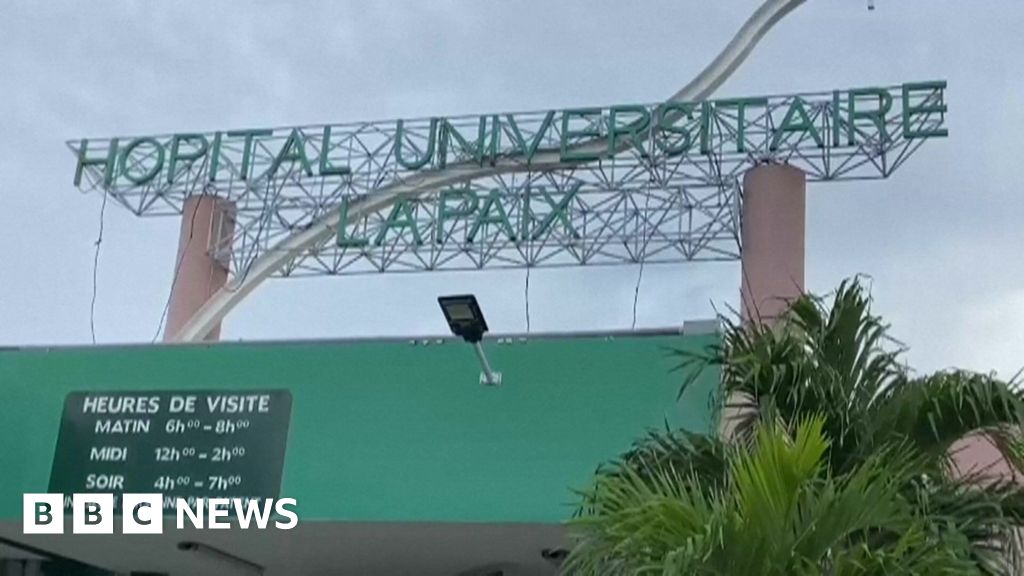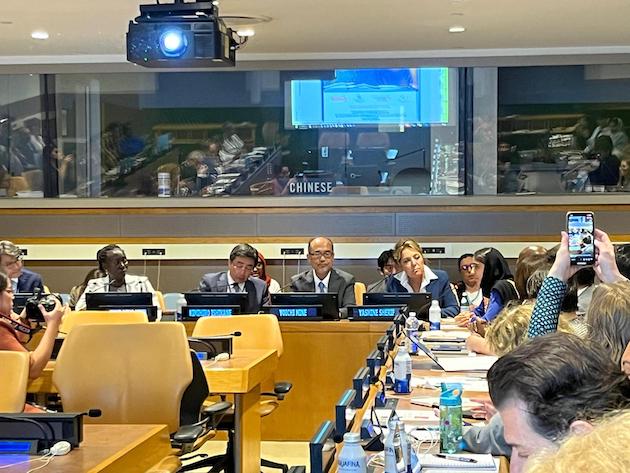What’s Behind Sending a U.S. Sub to South Korea?
ANALYSIS / INTERVIEW – The last time a nuclear-armed American submarine docked in South Korea, Kim Jong-un, North Korea’s Supreme Leader, was not yet born. Forty-years later, as tensions ratchet higher following a record number of North Korean missile tests, President Joe Biden and South Korean President Yoon Suk-yeol agreed this week for a return to port.
The move, forged as a part of a broader agreement during a White House summit Wednesday, which President Yoon described as a “righteous alliance,” constitutes “a strong message of reassurance,” said Andy Weber, former U.S. Assistant Secretary of Defense for Nuclear, Chemical and Biological Defense Programs.
“By receiving President Yoon in a state visit, of which this administration has had very few, it signals that our alliance which is celebrating 70 years, is stronger than ever.”
President Yoon, only the second head of state to be hosted in an official state visit at the Biden White House – after French President Emmanuel Macron – is facing increased pressures at home from mounting military activity across the 38th parallel. Earlier this year, Yoon said his administration was considering a restarting of its own nuclear weapons program — something more than 70% of South Koreans say they would support.
This week’s summit, security experts say, is thought to be a part of an American effort to placate those concerns.
It’s not just for the President anymore. Are you getting your daily national security briefing? Subscriber+Members have exclusive access to the Open Source Collection Daily Brief, keeping you up to date on global events impacting national security. It pays to be a Subscriber+Member.
For context, in 1991, shortly after the collapse of the Soviet Union and the end of the Cold War, the U.S. withdrew all of its nuclear weapons from South Korea, with both the north and south signing onto a joint declaration in which they vowed not to “test, manufacture, produce, receive, possess, store, deploy or use nuclear weapons.”
To date, Pyongyang has not lived up to its end of the bargain.
In fact, North Korea is thought to maintain sufficient material for more than one hundred nuclear weapons, according to a recent Council on Foreign Relations report, with intercontinental delivery systems capable of reaching the continental United States.
Earlier this month, satellite imagery revealed increased activity at North Korea’s main nuclear site. Days later, Pyongyang said it had successfully tested a solid-fuel missile, considered a far harder-to-detect system due to its comparatively smaller crew, ease of storage, and limited time constraints.
“[The missiles] don’t have to be filled in a somewhat time-consuming process the way the liquid-fueled rockets do,” explained Weber, who played key roles in efforts to destroy Libyan and Syrian chemical weapons stockpiles, as well as removing weapons-grade uranium from Kazakhstan and Georgia.
“It takes away a warning time,” he added. “In other words, it makes it harder for us to take out North Korean missiles on the launchpad if it only takes minutes to position and launch them. Whereas before, it took at least tens of minutes to fuel them up and get them ready to launch.”
Pyongyang also recently unveiled a new class of smaller nuclear warheads, vowing to expand its arsenal.
Meanwhile, top officials in Washington say Wednesday’s agreement was meant to bolster intelligence-sharing on nuclear and strategic weapons planning, and increase bi-lateral consultations on the Korean peninsula.
“As our troops say, who still proudly serve together,” noted President Biden ahead of the announcement. “We go together.”
And yet this week’s summit also comes against the backdrop of a major U.S. intelligence breach, which sparked outrage in Seoul last month after leaked documents pointed to alleged American spying against top security officials in the Yoon administration.
The files purportedly reveal private conversations over an American request to ship artillery rounds to Ukraine. Despite the U.S. delivery of more than one million 155-millimeter shells to Ukrainian battlefields, EU foreign policy chief Josep Borell recently identified looming ammo shortages as “the most important, pressing issue today for the Ukrainian army.”
“If we fail on that,” he said, “the result of the war is in danger.”
It pays to be a Subscriber+Member with exclusive access to virtual briefings with leading experts and top officials in the national security and intelligence space.
South Korea, whose internal laws restrict direct weapons sales to countries in conflict, thus faced a dilemna.
Yoon, a key U.S. ally who had already signed on to export-controls against Moscow, and had been confronting pressures from Washington to plug diminishing munitions in Ukraine, was also thought to be hesitant to further antagonize Russia, which shares an 11-mile border with its rival, North Korea.
The warnings, in fact, had already come.
“South Korea is well aware of the imminent negative effects produced by its eventual decision to join the group of ‘military sponsors’ of the [Kyiv] regime and to supply it with lethal weapons,” the Russian Embassy in South Korea wrote on Telegram. “Such actions would definitely ruin Russian-Korean relations that have seen constructive development for the benefit of both nations over the last three decades.”
U.S. intelligence disclosures, if accurate, could potentially add to the complexity of Seoul’s balancing act.
President Yoon, at the time of the disclosure, noted that “a significant number of the relevant documents were forged,” casting doubts on purported South Korean arms sales to the U.S. — which could antagonize Russia — as well as the extent of America’s alleged spying — which could fuel criticism from Yoon’s rivals at home.
The damage, however, may already have been done.
“As a sovereign nation, we must sternly respond to the spying of state secrets, even if it was committed by an ally with whom [South Korea] has bonded over blood,” said Park Hong-geun, floor leader of the main liberal opposition Democratic Party.
Yoon may therefore have needed a win, both at home and abroad. This week’s summit may have helped, securing substantive changes in both nuclear planning, along with the historic docking of a U.S. submarine.
Cipher Brief Deputy Managing Editor David Ariosto contributed to this report
Read more expert-driven national security insights, perspective and analysis in The Cipher Brief because National Security is Everyone’s Business.
Check out our Latest News and Follow us at Facebook
Original Source







